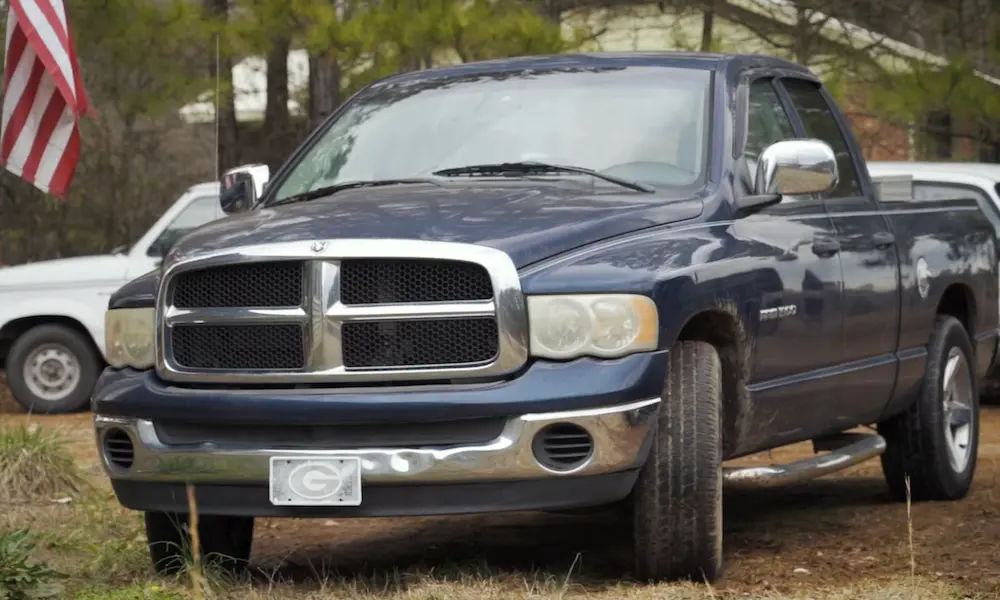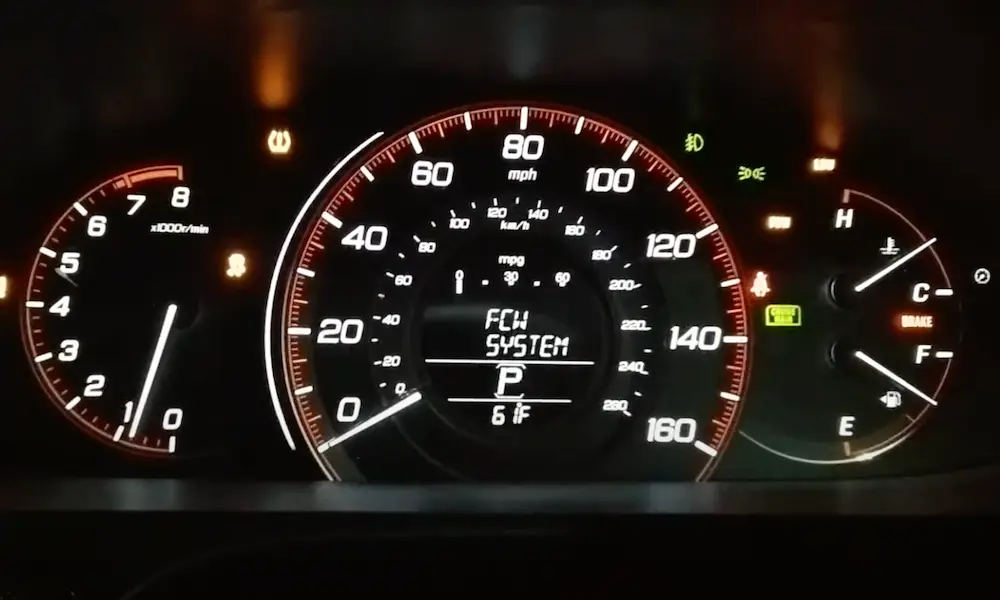Dealing with transmission problems in your Dodge Journey can be frustrating. Common issues like delayed engagement, malfunctioning PRNDL, and incorrect speedometer readings can disrupt your driving experience. Fortunately, solutions do exist to get your vehicle back in shape. Understanding these problems and knowing how to fix them can save you time and money. Keep reading to find out how you can address these transmission issues.
Common Transmission Issues in Dodge Journey
The Dodge Journey is known to have several transmission issues that can affect your driving experience. Key problems include hard shifting, slipping gears, burning smells, overheating, fluid leaks, and unusual noises. Below, each issue is discussed in detail to help you understand and address these problems.
Hard Shifting and Slipping Gears
You might notice your Dodge Journey shifts hard or slips gears while driving. This often occurs due to malfunctioning components in the transmission, like solenoids or sensors in the 41TE automatic transmission. The 41TE transmission is known for such problems, leading to erratic shifting and uncomfortable drives.
Regular maintenance and timely repairs can help mitigate this issue. Ignoring hard shifting and slipping gears can result in more severe damage.
Burning Smell and Overheating
A burning smell from your transmission is a serious sign of trouble. It usually means the transmission fluid is overheating. Overheating can happen if your transmission is overworked or the fluid level is low. The Dodge Journey is prone to such issues, especially in heavier traffic or long drives.
Overheating can lead to more serious damage if not addressed. Check your fluid levels regularly and consider installing an additional cooler if you often drive in hot conditions.
Fluid Leaks and Low Fluid Level
Transmission fluid leaks can be a common problem in the Dodge Journey. Low fluid levels lead to inadequate lubrication and poor gear shifting. Look under your car for red or brown spots, which indicate a leak. Issues with transmission seals or gaskets are often the culprits for fluid leaks.
Ensuring your transmission fluid is topped off and replacing damaged seals can prevent worsening problems. Regular checks can save you from expensive future repairs.
Unusual Noises and Grinding Sensations
If you hear strange noises or feel grinding sensations while driving your Dodge Journey, it’s a clear sign of a transmission problem. These issues might stem from internal wear or damaged gears. The 41TE transmission in particular is known for its numerous complaints, including electrical issues that cause poor shifting.
Address these noises promptly to avoid serious transmission damage. Schedule an inspection with a professional mechanic to diagnose and fix the issue.
By understanding these common transmission issues, you can take proactive steps to keep your Dodge Journey running smoothly and extend the life of your vehicle.
Specific Dodge Journey Transmission Mechanisms
Understanding the specific transmission mechanisms in your Dodge Journey can help you diagnose problems better. The main transmission types found in Dodge Journey vehicles include the A604 (41TE) Transmission and the 6-Speed 62TE Transmission.
A604 (41TE) Transmission
The A604 (41TE) Transmission began its use in earlier Dodge Journeys and is known for a few specific issues. One of the main problems is delayed forward and/or reverse engagement. This means there can be a significant delay when you shift into drive or reverse.
The Transmission Control Module (TCM) plays a crucial role in the A604’s operation. It manages the gears and helps with fuel efficiency. Sometimes, a faulty TCM can cause shifting issues or even prevent the transmission from engaging properly.
Another important part is the Torque Converter Clutch (TCC). This component improves fuel economy by locking the transmission at higher speeds. Problems with the TCC can lead to shuddering or slipping during shifts.
6-Speed 62TE Transmission
The 6-Speed 62TE Transmission is found in models built after 2008. It offers smoother gear transitions and improved efficiency. Common issues with this transmission include problems with the shift solenoid and throttle position sensor. These parts affect how your vehicle handles gear changes.
Checking the transmission fluid is crucial for maintaining the 62TE. Low or dirty fluid can lead to hard shifting or transmission overheating. Misalignments and sensor failures are also common and typically require professional diagnosis.
This transmission also relies on the Transmission Control Module to coordinate gear shifts. Malfunctioning TCMs can lead to erratic shifting or failure to change gears, impacting the overall driving experience.
Cost and Repair Considerations
Understanding the expenses and steps involved in addressing Dodge Journey transmission problems helps you make informed decisions. Regular maintenance can reduce costs and prolong your vehicle’s life.
Transmission Replacement Cost Estimate
Replacing the transmission in your Dodge Journey can be expensive. The cost largely depends on the specific issue and extent of damage. Typically, a replacement transmission might set you back between $1,500 and $3,500. If your vehicle has a 6-speed 62TE transmission, costs may vary.
Factors like driving habits and the age of your vehicle also impact the final price. Remember that labor costs are a significant part of the expense. Different shops have different labor rates, so it’s wise to get multiple estimates before proceeding.
Finding a Reliable Transmission Repair Center
Choosing the right transmission repair center is crucial. Look for a shop with certified technicians and positive customer reviews. Reliability and expertise are essential to ensure the repair is done correctly and efficiently.
Ask friends or family for recommendations and read online reviews. Transparency in pricing and a detailed explanation of the necessary repairs are good indicators of a trustworthy repair center. Make sure the shop uses quality parts to avoid future issues.
The Value of Regular Maintenance
Regular maintenance can save you from costly repairs. Routine checks include examining fluid levels, looking for leaks, and monitoring your transmission’s performance. Addressing minor issues early can prevent major breakdowns.
Driving habits also play a role in transmission health. Avoiding aggressive driving and ensuring smooth gear shifts can reduce wear and tear. Scheduled fluid changes help keep your transmission running smoothly. Keeping up with maintenance can add years to your Dodge Journey’s lifespan and keep repair costs low.
The Impact of Driving Habits and Maintenance
Your driving habits have a big effect on your Dodge Journey’s transmission. Rapid acceleration and sudden stops can cause unnecessary strain. Gently accelerating from a stop can help prolong the life of your transmission.
Regular maintenance is crucial. Make sure you check the transmission fluid often. Low or dirty fluid can cause serious problems.
You should also keep track of your car’s mileage. As your vehicle gets older and the miles add up, the chances of transmission issues increase.
Consider avoiding rapid acceleration and shifts. These habits can reduce stress on your transmission and extend its lifespan.
Lastly, addressing any minor issues quickly can prevent bigger problems down the road. Regular check-ups can help catch and fix small problems before they turn into expensive repairs.
By combining good driving habits with regular maintenance, you can keep your Dodge Journey running smoothly for many miles.
Model-Specific Challenges and Recalls
The Dodge Journey has experienced a range of transmission problems over different model years. It’s important to know the specific issues and recall histories to make an informed decision as an owner or potential buyer.
Known Issues with Dodge Journey Models
The Dodge Journey models from 2009 to 2016 are known for having significant engine issues. These problems, which include overheating, often appear after around 78,000 miles. This is usually due to coolant flow challenges caused by debris blocking the cylinder head coolant port at the primary thermostat housing.
Transmission fluid leaks and burning smells are often reported as well. Maintaining proper fluid levels can help prevent these issues.
Recall Histories and Their Implications
Dodge has issued multiple recalls for the Journey. Specific recalls address problems like faulty transmission hoses and software updates to prevent unexpected shifts to neutral. These recalls aim to enhance the reliability of the vehicle’s transmission system.
One notable recall involves the 6-speed 62TE transmission, which was fitted in models from 2008 onward. Issues with this transmission include unexpected gear changes. Make sure your vehicle has gone through all necessary recall services to maintain safety and performance.
Staying updated on recalls is crucial. Check the recall history of your model and ensure all recall repairs have been completed. This can prevent potential transmission failures and improve your driving experience.














